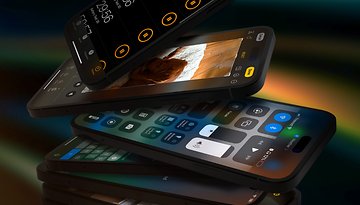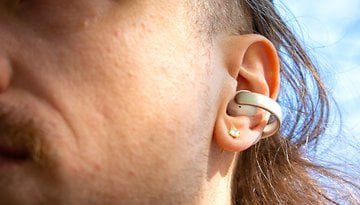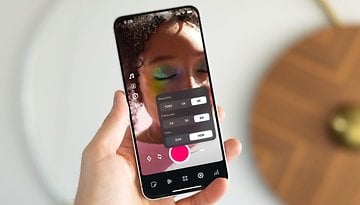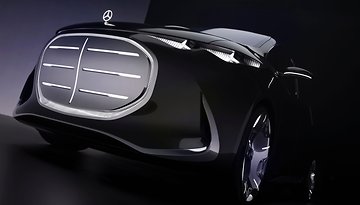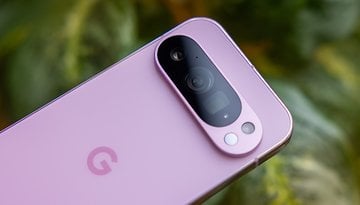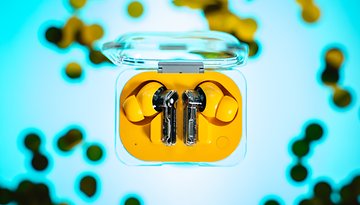IFA 2020: Huawei shows it's not giving up on Europe
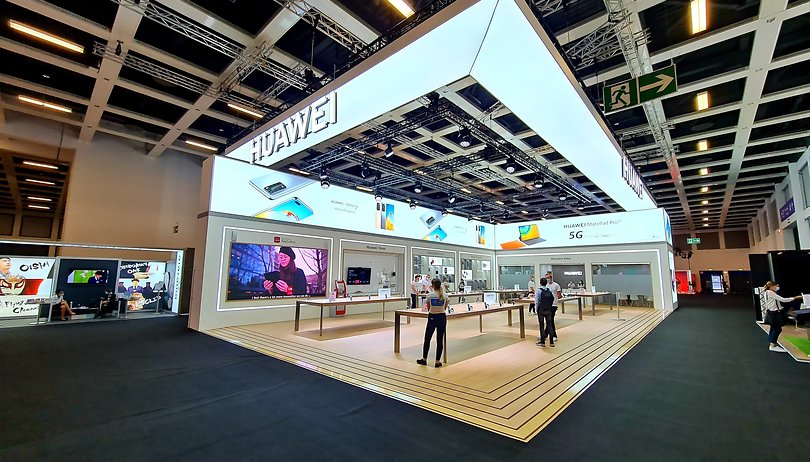

Read in other languages:
"Take a stand", or so the saying goes. At IFA 2020, Huawei has taken the expression to the literal extreme. The Chinese giant was one of the only major mobile manufacturers to be physically present with a booth/stand at the technology fair that is currently happening in Berlin. This is certainly a novel way to ensure that your presence is known in Europe, even though there are no new products lined up for announcements that will wow the masses.
This year's edition of IFA can be considered to be an extremely muted affair, where health restrictions have been put in place in relation to the Covid-19 pandemic. Admittedly, this is a rather sad development. However, out of the two halls where IFA 2020 is hosted, only a few stands or booths of companies that have yet to pull out from this European technological showcase remain - with the Huawei booth standing out like a shining beacon of light in the dark. Or is it simply a ruse?
In between a trio of other companies, namely TP-Link, Fitbit, and sex toy brand Satisfyer, Huawei's stand was truly the only one to remind everyone at IFA of what the world was like prior to the coronavirus pandemic. While the booth does bring us back to the past and the 'old normal', it felt all the more strange as the technology giant had no new products or services to show.
So why rent a hundred square meters, set up a dozen tables, and as many hosts and hostesses on the floor to present a muted event to a handful of journalists?
Showing commitment in Europe
C-O-M-M-I-T-M-E-N-T. Commitment is the keyword hammered in by Walter Ji, the CEO of Huawei Europe. "Rather than list the details of our new products, I would like to tell you the true story of Huawei in Europe."
This is the level of transparency that I would have liked to see Huawei demonstrate at IFA 2019 last year, when I participated in its press conference and saw how the firm sparsely communicated the effects of the American trade embargo in a somewhat contradictory manner.
However, it is better late than never - so to see how Huawei was keen to tell its side of the story while taking stock of its activities in Europe, what it has delivered to this particular market and its consumers, is a rather refreshing change.
One thing is for sure, Huawei faced a decline of its sales in China (-35% in Q1 2020), which has forced the company to train its guns on Europe as a key market. This would then reduce their dependency on its domestic market (which was where 72% of its sales in Q1 2020 came from), where it remains ultra-dominant.
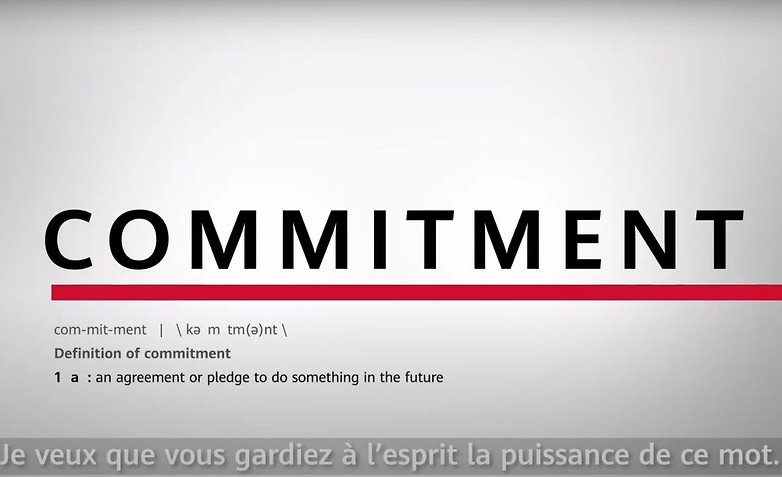
Apart from commitment, it is also all about its investments
Commitment means more than just commitment but also investing. We are talking about a company, and with any self-respecting company, it includes profits, costs, and results - details that shareholders are interested in.
"Few people know how committed and invested we are in Europe's future success," Walter Ji said at the time. The Huawei executive then spent the next 30 minutes of his digital keynote taking stock of how his firm brought about positive contributions to the Old Continent.
Walter Ji reminded everyone, for instance, that it was Huawei in Italy, the European country that was most affected at the beginning of the worldwide health crisis, that enabled the exchange of information and resources between Italian hospitals, doctors, and their Chinese counterparts courtesy of its technology and Welink cloud collaboration platform.
An "ungrateful" Italy which has subsequently, through its main private operator Telecom Italia (TIM), excluded Huawei from a tender for 5G networks in Italy and Brazil last July.
We then move on to 1+8+N, the name Huawei has given to its 5G strategy and the entire ecosystem of products, services, and infrastructure that revolve around it. "All of this has been made possible by an investment of over $82 billion in R&D over the last 10 years."
Boasting to be the fifth largest R&D investor in the world, Huawei further reminded us of its AppGallery's track record. With 460 million active users per month, including 33 million in Europe who use Petal Search, these are certainly impressive figures. Petal Search is Huawei's flagship app store that is powered by European search engines such as Qwant and Yandex (Russia), helping those affected by the trade embargo to download their favorite Android apps without having to go through the Google Play Store.
All of this is, of course, to ensure that European Huawei consumers can continue to enjoy Huawei products despite the absence of Google services.
But it's not just for its customers that Huawei is pouring in tons of money for investment in Europe. The firm reminded everyone of how much it contributed to the EU economy by financing European start-ups and companies. New start-ups like Jodel, the German start-up behind a geolocalised messaging app, is one of such examples.
Its founder, Alession Avellan Borgmeyer, praised the ease and speed of integration of their Android app and iOS with Huawei's HMS Core services.
"We're far more European than most people realize."
According to Walter Ji, Huawei is a vital cog in the success and growth engine in Europe. He proudly discloses that the firm employs more than 11,000 people across the continent and has two of its headquarters in Poland and Germany, in addition to 23 research centers.
Its research program would moreover comprise of more than a billion dollars' worth of investment since 2010, with the involvement of a hundred European universities which would have been financed by Huawei. All in all, the Chinese giant claims to have created around 223,000 jobs in Europe in 2019 alone, based on an independent study which I, unfortunately, could not hunt down, and neither did he disclose the source of that information.
"And it's not over yet." Walter Ji announced the upcoming opening of 50 new physical stores across Europe in Spain, France (a flagship store was opened in Paris last March), Belgium, Italy, Germany, and the UK. Out of these 50 stores, 8 will be flagship stores while another 42 are "experience stores."
A commercial presence that will employ hundreds of additional Europeans across the continent is something that gives them clout, according to Huawei. This kind of economic development will also play on the attractiveness of the cities in which the firm intends to establish itself. Who needs Jean Castex's recovery plan when you have Huawei?
However, all this is might be nothing more than just hot air. What Huawei really wants to do is to reassure its customers. To provide them with the assurance that its products are reliable, secure, and respect their privacy. In short, Huawei wants to put an end to the idea that the company is all about unwarranted information espionage that it has long been associated with while using tangible and judicially-established proof.
"We would rather shut down Huawei than do anything that could harm our customers' interests for our benefit," Huawei promised before listing third party European bodies and regulators involved that ensures such privacy standards are adhered to.
These are certainly strong words and a staunch commitment that contrasted with the excitement surrounding what Huawei really had to offer during IFA 2020.
No new products but a hopeful heart: a missed opportunity?
Yes, because it's all well and good to have all of these commitments. And I mean it! I decided to take a step out of my forced cynicism in order to pen down this opinion piece by recognizing the strong stand taken by Huawei.
It's still a brave move to set up a booth at the IFA 2020 when all of its competitors such as Samsung have deserted the Berlin technology showcase. And it's even more daring to spend tons of money on a facility that is closed to the public and without having new products to present.
It's a show of force from Huawei if anything, but also a show of commitment and resolve. This is one act that will not be easily forgotten as behind this laudable declaration of intent, which I sincerely want to believe in, the fact remains that the manufacturer still came up empty-handed.
There are no new and stunning ads. No upcoming smartphone while the resilience of Huawei's hardware division remains uncertain in the face of the intensifying embargo. There is also no additional information concerning the upcoming Mate 40 smartphone without a whisper on new apps on the AppGallery, either.
Huawei would have kept all its 'ammunition' for its conference dedicated to developers, the HDC (Huawei Developer Conference). HDC is the place where the company will unveil new products, starting on September 10th. So it could be a totally deliberate choice by Huawei to perform its theatrics at IFA 2020 in order to refresh our memory before going back to doing business at home, in an environment of which it has far more control.
It does, however, make you wonder whether Huawei bet on the wrong horse by choosing the IFA 2020 as a platform for its declaration of honor and to defend its track record in Europe, especially without having enough to back up its claims, no matter how hopeful and self-assured they may seem.
But I'm not going to risk playing the role of a tech Nostradamus. Even without having anything new to say, Huawei has managed to make a name for himself. This article is proof of such a claim. All that remains is to see how the firm will bring to life its clearly stated ambitions, in order to finally enter this 'new normal' of the technology world.
To read also on NextPit:







